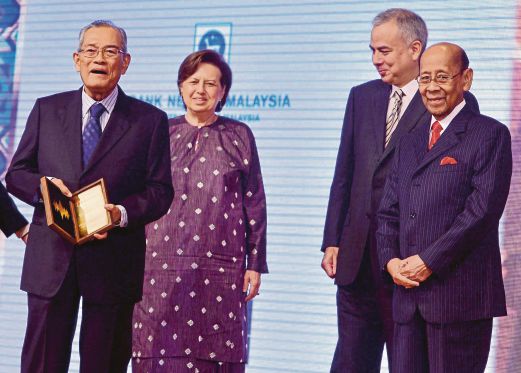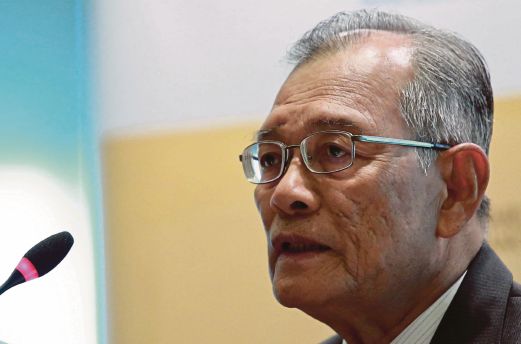NEW STRAITS TIMES ONLINE, 5th September 2014
Zaidi Isham Ismail
KUALA LUMPUR: Malaysia’s Islamic finance fraternity should consider a sadaqah (charity) house that provides products and services to collect various types of sadaqah, waqf (endowment) and hibah (gift payments) mainly from the private sector, and distribute these to the poor and the needy.
Royal Award for Islamic Finance 2014 recipient Datuk Dr Abdul Halim Ismail said the sadaqah house may be a foundation formed by the owner or a subsidiary company.
“An important requirement here is that the sadaqah house is owned and controlled by the banking group or any other organisation that is given the licence.
“Like a takaful company, a sadaqah house would be a financial institution. It would operate in the Islamic banking system and the Islamic capital market.
“It is, therefore, under the supervision of Bank Negara Malaysia and the Securities Commission as appropriate,” Abdul Halim said in his lecture series on the last day of the Global Islamic Finance Forum 2014, here, yesterday.
He said there should be an Act of Parliament and various Bank Negara guidelines, which specifically spell out important matters of the sadaqah houses, such as licensing, financial requirements and duties, ownership, control and management as well as powers of supervision.
“In this area, if I may, I thought that in the initial five to 10 years, three to five licences may be given to the organisations, preferably Islamic banking group.”
According to Abdul Halim, the possible products and services that a sadaqah house might offer, including those with varying nature of charities.
“In my view, it is highly advisable for the sadaqah house to accept sadaqah only in cash, but it may also wish to extend this to other Islamic banking and financial instruments that may be converted to cash.”
Abdul Halim said the sadaqah house may accept at a minimum of RM10 each time and at any time through deposit, bank transfers or salary deduction.
“This is a totally new phenomenon. Up to now, sadaqah is only available through donating big-ticket item, such as land and buildings and only by the wealthy.
“The mechanism for implementing sadaqah would be for the sadaqah house to treat the principal amount as capital to be carefully preserved and prudently investing it to generate profits, which will be regularly distributed.”
He proposed for the investment to be generally confined to Islamic banking and financial instruments within the banking and financial institutions, such as various types of deposit, investment accounts, sukuk and various investment management products.
“In Malaysia, we need only to look at Tabung Haji and Permodalan Nasional Bhd (PNB) to be convinced that this method of investment will work and attain its objective.
“Tabung Haji has been successfully managing the deposit of its investors for the last 50 years, while PNB has done the same for its unit-holders for the last 40 years.”

Yang di-Pertuan Agong Tuanku Abdul Halim Mu’adzam Shah (right) giving the Royal Award for Islamic Finance 2014 to Datuk Dr Abdul Halim Ismail Datuk Dr Abdul Halim Ismail (left). With them are Sultan of Perak Sultan Nazrin Shah and Bank Negara Govenor Tan Sri Dr Zeti Akhtar Aziz. Pic by Mohd Yusni Ariffin.

Royal Award for Islamic Finance 2014 recipient Datuk Dr Abdul Halim Ismail says the sadaqah house may accept at a minimum of RM10 each time and at any time through deposit, bank transfers or salary deduction.
